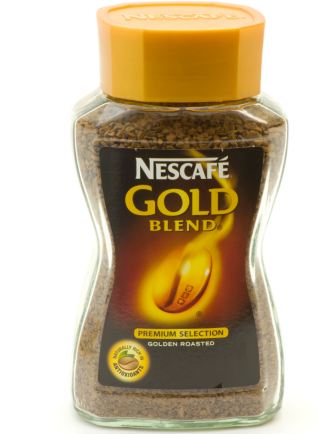According to new research, the type of coffee you drink could reflect your personality.
A study has found common attributes between people who enjoy certain types of coffee.
If you like extra-foamy coffees such as cappuccino then you’re more likely to be obsessive and controlling, whereas latte drinkers go out of their way to please others.
Clinical psychologist Dr. Ramani Durvasula conducted an observational study of 1,000 coffee drinkers.
The survey assessed numerous common personality styles and psychological traits including introversion and extraversion; patience; perfectionism; warmth; vigilance; sensitivity; and social boldness, among others.
Black coffee drinkers were found to be “no-nonsense” individuals and straightforward.
They liked to keep things simple, could be quiet and moody, and were set in their ways.
Being abrupt and dismissive were also common personality traits.

The type of coffee you drink could reflect your personality
Latte drinkers tended to be more neurotic and eager to please people.
They were happy to go out of their way to help others – but didn’t take great care of themselves.
Instant coffee drinkers had a greater likelihood of being procrastinators, were too laid back and were likely to put things off.
And those individuals who ordered sweet drinks, like frozen and blended coffees, were “socially bold” and considered to be “overgrown kids” who retained the taste buds and sensibilities of children, while being “young at heart”.
They didn’t always make healthy choices and could be reckless. They were also found to be trendsetters.
Those who chose double decaffeinated, extra-foamy coffees tended to be more obsessive, controlling and detail-oriented.
In the survey, which is described in Dr. Ramani Durvasula’s book entitled You Are WHY You Eat: Change Your Food Attitude, Change Your Life, people were given common scenarios including waiting in long lines and planning dinner parties.
Participants were asked to choose from a series of approaches to these scenarios.
The survey then asked if they drink coffee and what they typically ordered.
Dr. Ramani Durvasula said despite the interesting research that was gathered “we are no more defined by our coffee orders than we are by our astrological signs”.
He suggested it was still quite possible to be a controlling latte drinker or a Type A black coffee drinker.
Food companies in UK have been warned about the presence of acrylamide, cancer-risk chemical, in everyday products ranging from crisps and chips to instant coffee and ginger biscuits.
A biscuit designed for babies and toddlers has also been caught up in the alert.
Experts are even warning families to only lightly toast their bread at home, as the chemical, called acrylamide, is more likely to form the longer and darker foods cook.
A study by the UK Food Standards Agency (FSA) has identified 13 products containing raised levels of the chemical. In each case, officials at the local council where the supplier is based have been told to notify them.
Acrylamide, which is still being investigated by scientists, is a cooking by-product associated with frying, baking, roasting or toasting foods at very high temperatures, usually greater than 120 C.
The FSA insists its findings raise no immediate risk to the public and there is no need for people to change their diet.

The UK Food Standards Agency warns food companies that everyday products such as instant coffee could contain the cancer chemical acrylamide
However, it is putting pressure on all food companies to reduce acrylamide levels because long-term consumption could increase the risk of cancer. Its official advice is also that families should ensure bread and chips they eat are only toasted or baked to the “lightest color possible”.
The FSA said its study of levels of acrylamide and furan – another cancer-risk chemical – is used to identify which firms need to take action. Acrylamide is formed by a reaction between natural components in food as it cooks.
In reality it has probably been in the diet for as long as man has fried, roasted or toasted food. Manufacturers including Heinz and McVitie’s have already responded by changing their recipes.
But others, including Nestle, makers of Nescafe, say it is impossible to do so without harming the flavor and quality of their products. Nestle added: “There is currently no scientific evidence to suggest any particular product has any negative impact on health in the context of acrylamide exposure.”
The FSA is required by the EU and the European Food Safety Authority to carry out the annual tests. It looked at 248 samples, from chips sold by fast-food outlets to supermarket own-label and big brand ranges. In 13 cases levels were above the “indicative value” – a trigger point to tell the firm it should examine its production process.
European watchdogs have been putting pressure on food manufacturers to reduce acrylamide for almost a decade.
In 2002 Swedish studies revealed high levels formed during the frying or baking of potato or cereal products.
The FSA said: “This raised worldwide public concern because studies in laboratory animals suggest acrylamide has the potential to cause cancer in humans by interacting with the DNA in cells.
“The Agency believes exposure to such chemicals should be as low as reasonably practicable.”
The latest survey found “an upward trend” in acrylamide levels in processed cereal-based baby foods, excluding rusks. Importantly however, the FSA said this did not mean parents should stop giving these products to youngsters.
The UK Food and Drink Federation, which represents manufacturers, said members are “ensuring levels are as low as reasonably achievable”.
Heinz changed its Banana Biscotti recipe this year to reduce acrylamide to trace levels. United Biscuits, which makes McVitie’s Gingernuts, said it has cut acrylamide by 70%. The firm also pledged to cut levels in its McCoy’s crisps.


